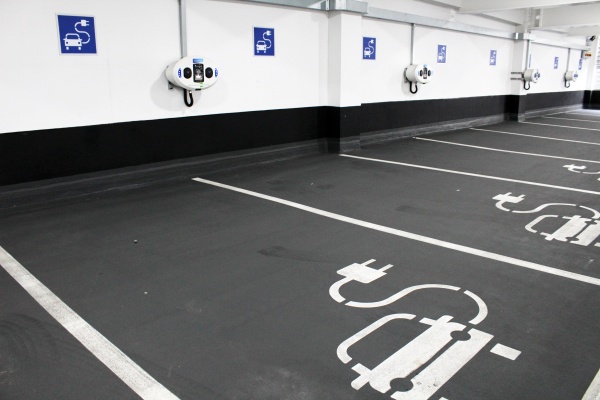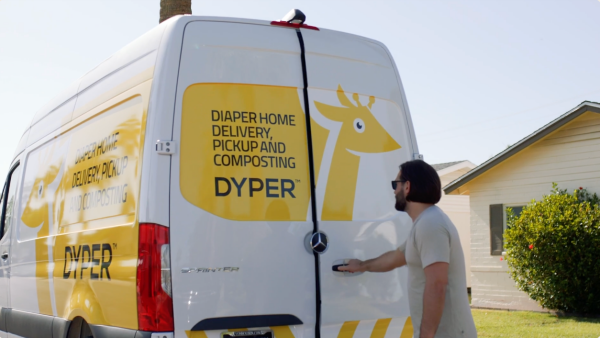Happiness is contagious and misery loves company. The same goes for boredom at work, it turns out. Almost a third of workers admit they cope with feeling bored by distracting their colleagues, according to a new survey of 1,000 Americans. The methods include gossip (20%), venting about their personal lives (16%), and sharing TikTok videos (a surprisingly low 7%, although social media is the top general source of procrastination).
Over 4 in 10 bored employees don’t inform their managers, fearing it would result in higher workloads. Everybody needs an occasional brain break, but if distraction is a problem for you, check out our time management tips.
|
|
|
EV SOS: Is the all-electric future being put on hold?
DYPER: Company makes baby output, uh, greener
Pop-Tarts: A creepy-yet-delicious marketing stunt
|
|
|
How the Electric Vehicle Future Lost Its Spark
|
Back in 2014, you might’ve assumed that — in the impossibly futuristic year of 2024 — everybody would commute to work from Jetsons-style towers in self-driving (self-flying?) Teslas.
Instead, automakers are disappointed with EV sales, which increased only 50% YoY versus the expected 100%. Inflation-weary customers are opting for cheaper gas cars. The harsh winter is limiting battery range. Elon Musk seems X-tremely distracted. Hertz is selling off a third of its Tesla rental fleet and Ford is cutting production of its F-150 Lightning electric truck.
It’s odd timing for a bust, as the EPA proposed its strongest-ever tailpipe emission limits, and California mandated 100% zero-emission new vehicles by 2035.
But the mandate has automakers, dealers, and other stakeholders nervous. Even though 90 new EV models are set to launch by 2026, analysts believe they’ll struggle to reach profitability. Many small and mid-sized dealerships across California declined to speak with
b. on the record, admitting they lack the knowledge or resources to discuss preparing for the industry shift.
“There are a lot of problems with the 2035 mandate,” says Giovanni Charolet, general manager of Zacatlan Motors in Ontario, California. “For one, I don’t think our cities are prepared. There aren’t enough charging stations in the area. If you go over to Ontario Mills Mall, you might wait two or three hours some days to get to recharge your car.”
Dealerships themselves currently lack the appropriate infrastructure to store large numbers of EVs on their lots, according to Charolet.
“We need to build charging stations at our own location, and they require special powering systems,” Charolet says. “These things are expensive, and when most of our customers aren’t interested in electric vehicles, it’s hard to commit.”
Federal, state and local governments can allocate resources to build charging stations, but Charolet raises another potential issue: He doesn’t know of any mechanics in his area with EV certification, aside from a Tesla warehouse that offers repairs.
It’s disappointing news for those who believe in green technology as a solution to the climate crisis. However, perhaps 2035 is far enough away to prepare appropriate infrastructure and training — in fact, it sounds impossibly futuristic.
|
|
|
Get expert support with QuickBooks Online’s new Live Tax feature
|
Filing your taxes this season doesn’t have to be a, well, taxing experience.
QuickBooks Online offers a seamless books-to-tax experience that allows you to quickly and easily migrate financial data from your accounting software to your tax filings. With the new Live Tax feature, designed with your likeliest questions in mind, you’ll also have access to unlimited expert help to ensure your taxes are filed correctly and your deductions are maximized.
Best of all, Live Tax support from QuickBooks Online is risk-free to try — you’ll only pay when you actually file. If you’re ready to test-drive a better way to manage your taxes, QuickBooks Online is the partner for you.
|
|
|
DYPER Wants to Make Your Baby’s Output, Uh, Greener
|
So, EVs might not save the planet. But what about diapers?
The staggering number of diapers dumped into landfills — each baby goes through approximately 4,000 by the time they learn how to use a toilet — is one of the messiest problems out there. And pollution stinks.
DYPER is aiming to change that by putting a tech-era spin on the mid-20th- century cloth diaper service. In addition to selling products made with sustainable materials, it’s created the REDYPER Program: “Families can opt into curbside pickups or ship their soiled products back to us for responsible disposal.” So far, the program has “saved more than 14 million pounds of diapers from landfills,” according to the company.
The cost is $20 for each pickup, plus a fee for compostable bags or shipping boxes. Now you can feel good about emptying your Diaper Genie, even if you feel kinda bad for those poor postal workers.
|
|
|
Pop-Tarts Performs Creepy-Yet-Delicious Ritual Sacrifice of Mascot
|
Tony the Tiger … Lucky the Leprechaun … Toucan Sam …
Count Chocula … Snap, Crackle and Pop. There are so many lovable mascots in breakfast history, but only Pop-Tarts had the vision and courage to publicly execute theirs.
At last month’s college football game between Kansas State and NC State, an anthropomorphic Pop-Tart named Frosted Strawberry —
it had a name — was lowered into a giant toaster in the middle of the field. Frosted Strawberry then emerged fully cooked to the tune of Donna Summer’s “Hot Stuff,” at which point K-State’s players feasted on its still-smiling corpse.
“For 60 years, Pop-Tarts has sacrificed everything for flavor,” Pop-Tarts’ Senior Director of Marketing Heidi Ray told Marketing Dive, “and our mascot … wasn’t going to be any different.” She also told NPR, “Campaigns that earn both coverage and conversation have a disproportionate business impact,” likening the sugary slaughter — which went viral — to “a major.”
(The Trix Rabbit couldn’t be reached for comment because at press time he was simmering in a delectable tomato ragù.)
|
|
|
Written by Ali Saleh, Elizabeth Barton, Dan Ketchum and Marty Beckerman.
|
|
|
|



.png)

.png)



.png)
